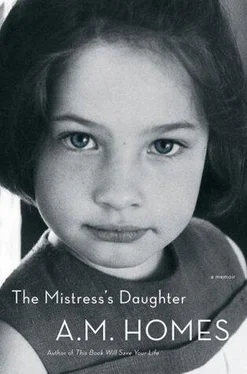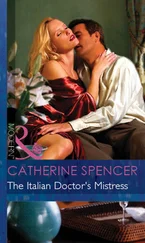…. at the time I was carrying this little girl it was not proper for a girl to have a child out of wedlock. This was probably the most difficult decision of my entire life to make. I was 22 years old and very naive. I was raised very sheltered and very strict by my mother.
I remember being in the hospital with her and dressing her the day we both left the hospital. I have never forgotten the beautiful black hair and the blue eyes and the little dimples in her face. As I left the hospital with the lady who was picking up the little girl, I can still see myself in the taxi and her asking me to give her the baby. I did not want to give her the child, however, I did realize, I did not have the wear-with-all to take care of her myself. Yes, I have always loved this little girl and been tortured every December of my life from the day she was born that I did not have her with me.
She writes that watching television shows like Oprah and Maury gave her the courage and the confidence to come forward. She lists the facts of where she was born, what street she lived on as a child, how she grew up. She tells the names of her parents and when they died. She says how tall she is and how much she weighs.
She writes of never forgetting.
Each bit of information swims through me, takes root, digging in. There are no filters, there are no screens. I have no protection from this.
She closes her letter by saying, “I have never married, I have always felt guilty about giving this little girl away.”
I am that little girl.
I call the lawyer and ask for another letter, with more information, a medical history, a more detailed explanation of what happened, what she’s been doing since, and a photograph of her.
A day later, in a panic, I call the lawyer back. “Oh,” I say. “Oh, I forgot. Could you ask her who the father is?” Not my father, but the father.”
“Okay,” he says. “Okay. I’ll put it on the list.”
Within days, a second letter arrives, again having been opened.
I suppose now, I should tell you about Norman Hecht. This is difficult for me because to me it is turning back the hands of time. I went to work for Norman at the Princess Shop in downtown Washington D.C. I was 15 years old. I worked for him on Thursday night and on Saturdays. During the summer, I worked fulltime. Norman as you know was much older than I. He was very nice to me. This relationship started very innocently. He would offer to drive me home and we would talk about many things on the way. Then one day while we were working he asked me if I would like to go to dinner with him. This was the beginning. At age 17, he called my mother and asked if he could marry me. My mother said, “she is too young.” Hung up the telephone, turned to me and said, I do not want you to see this man ever again. At this time, I was in love and nothing she said would stop me. I have always been a very determined person. Stubborn if you will. This is me. Norman is married at that time and promises to get a divorce and marry me. This was not my idea but his. Time goes on, I become pregnant with the young lady. He thinks I should go to Florida. He will buy a house for us both. About three months later, I am very unhappy. I return to Washington. Norman and I start to have disagreements. During the last three months of the pregnancy I stayed with my mother in Virginia where her home was. Shortly before the baby was born, Norman again said he would marry me. He asked if he could come and pick me up and take me to buy things for the baby. I told him no. I did not call him when the baby was born.
Norman to the best of my knowledge lives in Potomac, Md. He has four children. All of his children were born prior to the birth of our child. He was an All American Football Player. To the best of my knowledge his father was Jewish, his mother, Irish. I knew only his mother. She was a little chubby lady. Very kind and very nice to me.
You asked about my general health. I periodically do have a problem with bronchitis. This is treated with medicine. Damp weather is not for me. I do take pills for high blood pressure. Other than that, I am fine. I am nearsighted and do have soft teeth. Both inherited, my eyes from my father, my teeth from my mother.
She ends her second letter, “…I have a great fear of being disappointed with what I am now doing.”
Later, she will tell me that Frosh, reading the letter, recognized the father’s name and called her saying that if she was going to give the father’s name, she’d better let the father know what she was doing. She will tell me that she called my father and that he was shocked to hear from her, horrified at what she was doing, and told her that watching Oprah and Maury was beneath her.
Frosh is driving me crazy with his tinkering. It is an intrusion and interruption of the events — whose side is he on, what is he looking for, who is he trying to protect? I don’t want anyone reading my mail. I get a post office box. I call Frosh and ask him to pass my new mailing information on to Ellen. I purposely do not give her my last name, or my phone number. Having had no control over this situation for thirty-one years, I need to measure things out, moderate the amount of contact.
The father, another name to look up in the phone book, another set of blanks to fill in. What did his name mean to the lawyer? Why did he recognize it? Who is my father?
I call a friend in Washington, a native, a man who knows things.
“Does this name ring a bell?”
There is a pause. “It does. He used to come into one of the clubs.”
“Anything else?” I ask.
“That’s all that comes to mind. If I think of anything I’ll let you know.”
“Thanks.”
“Hey, is this someone you’re thinking of writing about?”
The next week, without warning, my parents visit me in New York.
“Surprise, surprise.”
They are being incredibly nice, warm and loving, as though I have a terminal disease — six months to live.
“We’d like to take you out to dinner,” they say.
I can’t go and I can’t tell them why. I send them to dinner, knowing that while they are gone, I will call her.
Hers is the most frightening voice I’ve ever heard — low, nasal, gravelly, vaguely animal. I tell her who I am and she screams, “Oh my God. This is the most wonderful day of my life.” Her voice, her emotion, comes in bursts, like punctuation — I can’t tell if she is laughing or crying. In the background there is a flick, a sharp suck of air — smoking.
The phone call is thrilling, flirty as a first date, like the beginning of something. There is a rush of curiosity, the desire to know everything at once. What is your life like, how do your days begin and end? What do you do for fun? Why did you come and find me? What do you want?
Every nuance, every detail means something. I am like an amnesiac being awakened. Things I know about myself, things that exist without language, my hardware, my mental firing patterns — parts of me that are fundamentally, inexorably me are being echoed on the other end, confirmed as a DNA match. It is not an entirely comfortable sensation.
“Tell me about you — who are you?” she asks.
I tell her that I live in New York, I am a writer, I have a dog. No more or less.
She tells me that she loves New York, that her father used to come to New York and would always return with presents from FAO Schwarz. She tells me how much she loved her father, who died of a heart attack when she was seven because “he liked rich food.”
This causes an immediate pain in my chest: the idea that I might die of a heart attack early in life, that I now know I need to be careful, that the things I enjoy most are dangerous.
She goes on, “I come from a very strange family. We’re not quite right.”
Читать дальше












